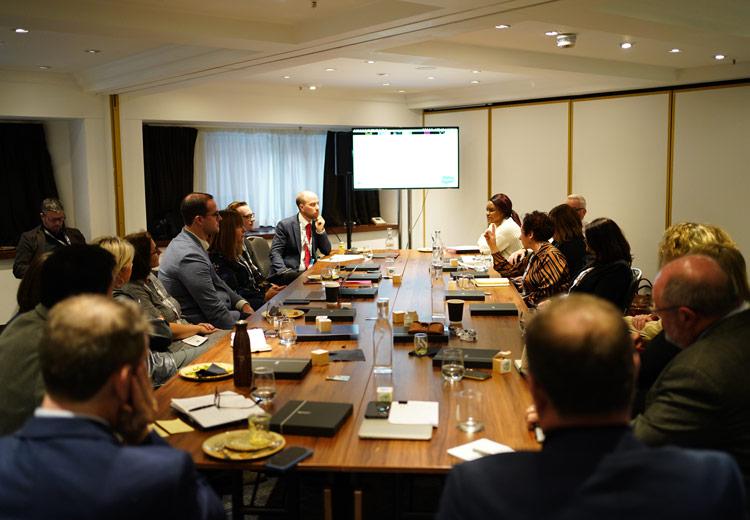
An early career researcher’s guide to impact

You may also like
For early career researchers (ECRs), beginning a research journey in today’s academic landscape can be both exciting and challenging. You move from completing a PhD to being told to publish, and publish more. This is usually just as you’re landed with a considerable teaching load without, in a lot of cases, mentorship or support.
Increasingly, research is being evaluated on its impact to wider society, rather than just its quality, and this has become another motivator – or hurdle – when developing a research career. But, if someone is looking to develop impactful research as part of their academic identity, where should they start?
We have recently published a book, Exploring Research Impact in Academia and Why It Matters, which explores, through discussion with impactful academics and impact professionals, the nature of impact in higher education. We argue it is often misunderstood or reduced to a bureaucratic requirement tied to exercises like the Research Excellence Framework (REF). Yet, those academics who told us about their institutional frustrations and lack of support also talked about how much they enjoyed working with stakeholders and seeing their research findings being used in practice or policy.
- Five steps for engaging policymakers with research
- Why is no one listening?
- Get the word out: four ways to communicate with non-academic audiences
Unfortunately, looking for meaning and fulfilment in an academic career is something that is often poorly supported in institutions where the only impact that matters is that which is considered 4* in the REF. But we argue that it’s crucial to look beyond metrics and frameworks, and instead think deeply about why your research matters.
1. Understand the ‘why’ of impact
One of the most powerful messages in our research is that impactful research starts with motivation – not metrics. Rather than seeing impact as a task to check off or an administrative burden, early career academics are encouraged to consider what drives them. What societal issues or community needs does your research speak to? Whose lives might be improved or changed? This sense of purpose gives direction and authenticity to your work. As we have reflected upon ourselves, researchers who view impact as an extension of their values and curiosity often find the greatest fulfilment – and the greatest success.
2. Make impact integral to the research process
Those we interviewed repeatedly stressed that impact should not be something bolted on after the research is complete. Instead, it should be interwoven throughout the life cycle of a project, something you should be cognisant of across different pieces of work. Although this is not new in public engagement with research discourse, it doesn’t always seem to diffuse across to the institutional impact space.
In practice, this means identifying and engaging with stakeholders at the earliest stages – whether they be policymakers, practitioners, communities, industry partners or advocacy groups. Consider co-producing research questions, sharing findings in accessible ways and maintaining ongoing relationships. Impact is most sustainable when it emerges organically from a research process designed to enable this, not when it is reverse-engineered to meet assessment deadlines.
3. Build meaningful stakeholder relationships
Developing relationships outside academia is vital for impactful research. These relationships should be reciprocal and based on trust, not transactional or opportunistic. The researchers we interviewed talked about the importance of engaging sincerely with communities and sectors with which you can co-create beneficial work, rather than seeing them as useful pawns in the research assessment process or potential avenues for funding. This could involve working with stakeholders such as schools, charities, health services, businesses or public bodies. Through these partnerships, ECRs can ensure their research is not only relevant, but also accessible and responsive to real-world needs. Over time, these networks also offer new avenues for mutual research, funding and dissemination.
4. Develop an impact-literate mindset
Another key piece of advice is to become literate in the language and practices of impact. Often, researchers are already doing impactful work without realising it. For example, a sociologist who advises local government on policy, or an education researcher who develops classroom resources, may be generating significant change. The challenge lies in learning to recognise, document, articulate and evidence this influence. And having strong relationships with stakeholders makes all of these things more straightforward.
Keeping records of engagement, feedback, media coverage or policy mentions can help when it comes time to demonstrate and reflect on the impact of your work. This does not mean forcing your work into a particular format, but rather cultivating an awareness of the channels through which the research travels.
5. Be proactive, do not assume institutional support
A key finding of our work is that, unfortunately, many institutions still approach impact in a reactive, assessment-driven way. Support structures may be inconsistent, short term, or poorly aligned with actual research practice. ECRs are advised not to wait for their institutions to take the lead.
Instead, take ownership of your impact journey. Talk to colleagues, find those in both academic and management posts who “get” impact and who have worked closely with policy, industry or community partners. Impact communities sometimes exist in institutions despite institutional indifference – and ultimately led to both recognition and deeper satisfaction.
6. Focus on long-term, cumulative impact
Rather than trying to generate quick wins or forcing a “case study” into being, think long term. The most compelling impacts and the underpinning research often take years to develop. They arise from sustained engagement, evolving relationships and iterative learning. Impact is rarely a one-off event but a process.
ECRs should be patient, consistent and committed. Keep refining your understanding and communication, improving your practice, deepening your engagement and extending your networks. Over time, this approach will yield more authentic and significant change than any short-term performance target.
7. See impact as part of academic identity
Ultimately, for some, we see the need for a reframing of academic identity itself. Rather than viewing research impact as external to “real” scholarship, there is a model of the academic who sees impact as integral to their professional self – someone who actively engages with the world, who sees research as a force for public good, who is proud to produce knowledge that matters, and is understood and appreciated by people outside the academy.
For ECRs, embracing this identity can be transformative. It is another reason to pursue research that is personally meaningful, socially relevant and professionally rewarding.
Starting a career based on research impact requires intention, reflection and resilience. But it can lead to a more rewarding and influential academic path. Early career academics are encouraged to:
- Connect deeply with the “why” of your work.
- Collaborate meaningfully with those beyond the university.
- Embed impact in their research from the start.
- Understand, articulate and document contributions with clarity.
- Embrace impact as part of your scholarly identity – not just an institutional requirement.
Don’t be afraid to reach out to people who have been on this journey for longer. We have found that many academics who see impact as intrinsic to their identity are very happy to help others on their journey.
Andy Phippen is professor of IT ethics and digital rights at Bournemouth University. Louise Rutt is senior research environment, culture and impact manager at the University of Plymouth.
If you would like advice and insight from academics and university staff delivered direct to your inbox each week, sign up for the Campus newsletter.


